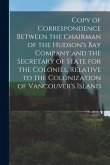"From Nationalism to Colonization: The Evolution of Nations "provides a comprehensive overview of the historical and social origins of nations, the emergence of the concept of nationalism, and the impact of capitalism on national identity. From Benedict Anderson's theory of imagined communities to Ernest Renan's critiques, from the economic foundations of modern nations to the cultural and political effects of colonization, it offers a broad perspective. This book invites readers to reflect on the nature and transformation of nations and explains the historical and theoretical context of nationalism with rich examples. It also analyzes the social essence and resilience of historically enduring nations, such as the Kurdish nation. As both an academic reference and a work of reflection on the evolution of societies, "From Nationalism to Colonization" is an indispensable guide for those who want to understand how nations have been shaped from the past to the present and what direction they may take in the future. >In my previous book, I explored the challenges confronting Turkey, focusing on the detrimental effects of nationalism, religionism, and statism on human rights and the process of nation-building. I examined what defines a nation, how the violation of human rights undermines the essence of human nature, and how systemic oppression can lead to genetic and societal afflictions over time. This foundation sets the stage for this book's deeper inquiry. In developed nations, democratic and civic nationhood serves as a cornerstone of governance and societal progress. By contrast, in underdeveloped countries, socio-economic development often stagnates due to manipulation by authoritarian states or oligarchic elites. This book argues that ideologies such as religionism, nationalism, and statism are the principal barriers to democratic state-building, particularly in politically regressive nations like Turkey. The central aim of this work is to critically analyze the meaning of nationhood and the evolution of social structures through historical processes. It delves into the interplay between ideologies like nationalism and the relationships among individuals, societies, and states. Drawing inspiration from Heraclitus' dialectical philosophy, this study explores the contradictions and richness inherent in the concept of nationhood. Themes of capitalism, religion, nationalism, and state power are framed within universal issues such as social justice and cultural diversity, contextualized against the transformative forces of human history.
Hinweis: Dieser Artikel kann nur an eine deutsche Lieferadresse ausgeliefert werden.
Hinweis: Dieser Artikel kann nur an eine deutsche Lieferadresse ausgeliefert werden.





![Memorial of the People of Red River [microform]: to the British and Canadian Governments, With Remarks on the Colonization of Central British North Am Memorial of the People of Red River [microform]: to the British and Canadian Governments, With Remarks on the Colonization of Central British North Am](https://bilder.buecher.de/produkte/66/66160/66160195m.jpg)


